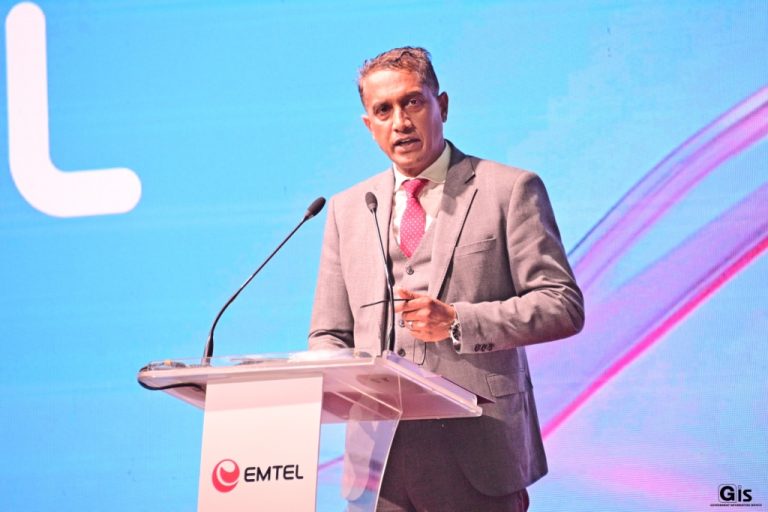
On 21 August 2025, the Minister of Information Technology, Communication and Innovation, Dr Avinash Ramtohul, announced that a series of new regulations will be enacted in line with the Digital Blueprint 2025-2029: A Bridge to the Future published in May 2025.
Speaking at the launching of the cloud services by Emtel at J & J Auditorium in Vacoas, the Minister said the Government was determined to make a change in the digital landscape of the nation and ensure that citizens and businesses fully benefit from the opportunities brought by digital technologies and artificial intelligence (AI).
“Compliance is a key element,” stressed Dr Ramtohul, highlighting that new legislation will be introduced, where justified, to create the right environment for businesses across all sectors to thrive while making technology more accessible to the population. “An inter-ministerial committee is overseeing the implementation of the Blueprint,” he added.
The Minister was adamant that as Mauritius continues to develop cloud-based data centres, it is critical that the right compliance measures are established by both the Government and by the industry regulators. While data is a driver of innovation and business value, he cautioned that it also represents a source of risk in the cybersecurity ecosystem. To address this, an Electronic Identity Management Bill will soon be introduced, anchored on the central population database and overseen by a dedicated data governance framework.
Moreover, the Minister pointed to digital services already being rolled out, including improved online facilities at the National Land Transport Authority for the renewal of road tax through the Online Motor Vehicle Licence platform, and the addition of a new security layer to the MauPass, which is the National Authentication Framework for Mauritius.
According to Dr Ramtohul, an e-health system will soon be deployed, with apps enabling pre-registration for services, information regarding the blood bank, and secure transfer of patient data between public hospitals—and eventually between public and private institutions. “These developments”, he underscored, “call for proper data management and legal amendments.”
With regard to social media, he raised concerns about harmful online behaviours, particularly for children, adding that platforms must take responsibility for the content they host. Drawing on the example of the European Union (EU), he noted that the onus of the correctness of the content rests on the platform providers. “On that score, Mauritius will continue to work with regional partners such as African Union, SADC and COMESA to that effect,” Dr Ramtohul said.
The Minister indicated that regulations for critical information infrastructure are also on the way, so that some industries such as banking, where high availability and disaster recovery capabilities are deployed, can be shared. Furthermore, the Office of the Data Protection Commissioner has finalised a national data strategy on data sharing, governance and protection, while a National Cyber-Resilience and Cybersecurity Agency will soon be set up as part of Government’s commitment to beef up cybersecurity, building on the Cybercrime and Cybersecurity Act and the Budapest Convention.
Concerning the fast-developing field of artificial intelligence, Dr Ramtohul affirmed that Mauritius envisages to adopt a hybrid approach to AI regulation, drawing from both the EU’s risk-based framework and the United Kingdom’s principle-based model. To this end, an industry committee with private sector representatives will work on an AI strategy as laid out in the Blueprint.
The Minister further emphasised Mauritius’ potential to position itself as a regional disaster recovery site for African businesses and governments, citing the country’s digital connectivity, political and financial stability, and multicultural workforce. As for internet governance, the Minister reiterated that Government will leave no stone unturned in ensuring that AFRINIC remains based in Mauritius and operates with full transparency. “Safeguarding the country’s digital sovereignty and protecting IP addresses from misuse,” he said, “is a key priority for the Government.”
Moreover, Dr Ramtohul welcomed the ICTA’s recent decision to authorise the provision of fixed broadband internet services through non-geostationary satellite orbit (NGSO) networks. This, according to him, makes internet services faster and more affordable across the territory while providing to the outer islands with an additional layer of redundancy.
Source: GIS
22 August 2025